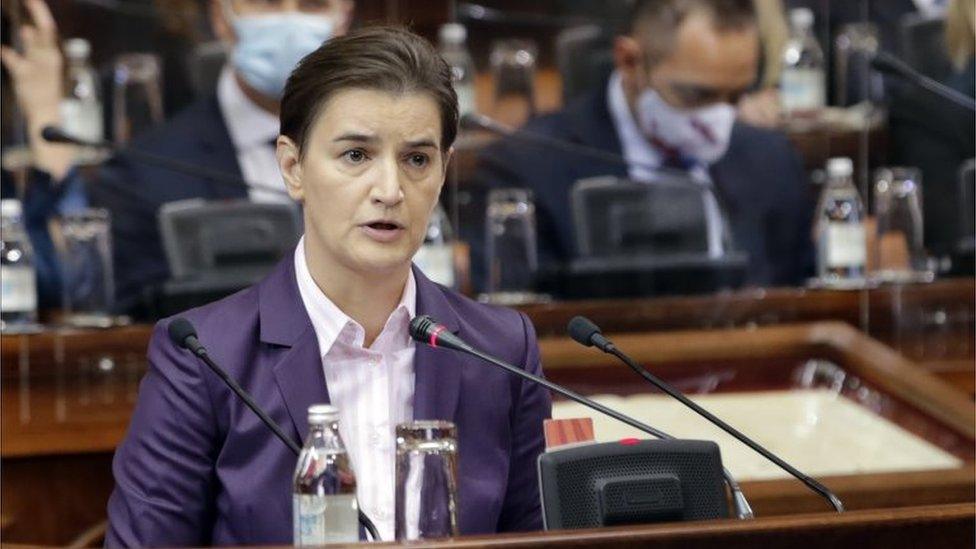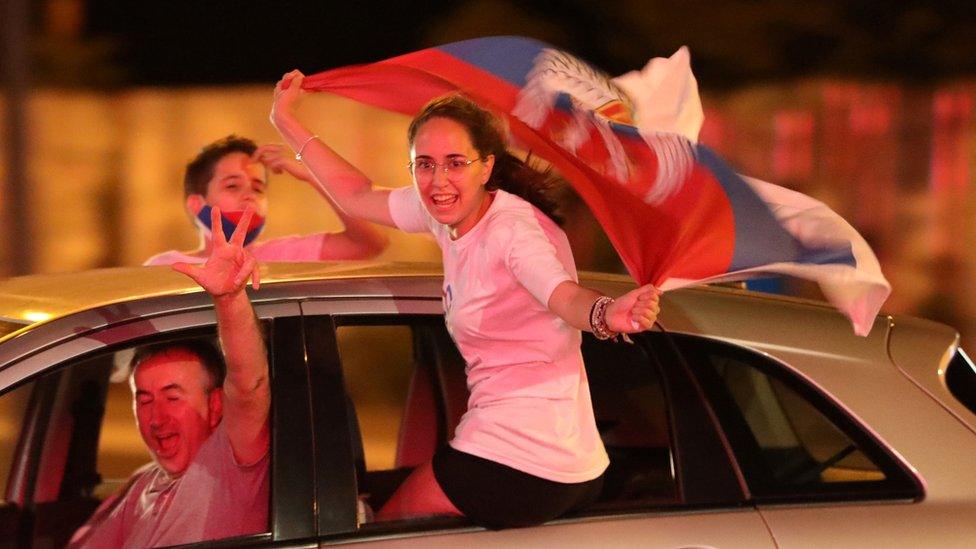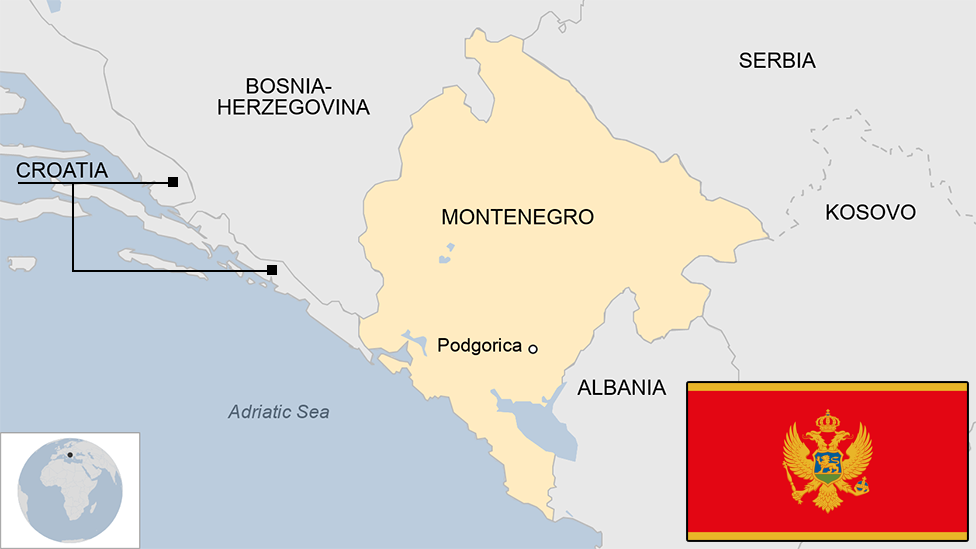Serbia rescinds Montenegro ambassador expulsion
- Published

Prime Minister Ana Brnabic said Serbia wants to extend the hand of friendship
Serbia has rescinded its decision to expel the Montenegrin ambassador following a row over a historical dispute dating back more than a century.
Serbia expelled Montenegrin ambassador, Tarzan Milosevic, after Montenegro gave Serbia's envoy 72 hours to leave.
Montenegro accused Vladimir Bozovic of "interfering in Montenegro's internal affairs".
Relations between the two nations have been tense for much of the past year.
On Sunday, Serbia's Prime Minister Ana Brnabic revoked the decision to expel Mr Milosevic and said her country wanted to extend "the hand of cooperation and friendship" to Montenegro.
Serbia's envoy, Mr Bozovic, was expelled after he described a decision by Montenegrin authorities in 1918 to unify with Serbia as a "liberation".
The 1918 assembly ruled that Montenegro would become part of the Kingdom of Serbs, Croats and Slovenes, which was later known as Yugoslavia. In 2006, Montenegro declared independence, becoming a sovereign state for the first time since the end of the First World War.
Mr Bozovic made the comments at a meeting of an association representing Montenegrin Serbs. He described the decision in 1918 as a "free expression of people's will to unite with fraternal Serbia".
Montenegro's incoming Prime Minister Zdravko Krivokapic criticised the current government's decision and accused it of trying to deepen divisions between ethnic Serbs and Montenegrins.
Mr Krivokapic, will lead a coalition of pro-Serb parties and is set to take office this week.
He says his new administration will "promote a good-neighbour policy with Belgrade" based on "non-interference in the internal affairs of other countries".
- Published31 August 2020

- Published22 May 2023
